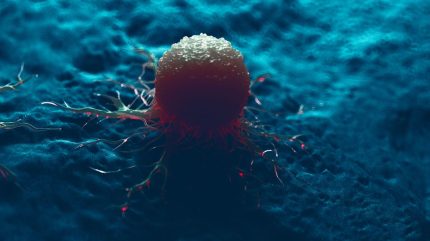
Immorna Biotherapeutics investigational new drug (IND) application for a Phase I/II study of its cancer therapeutic JCXH-211 intravenous (IV) has been approved by the US Food and Drug Administration (FDA).
The North Carolina based biotech will now be able to initiate a Phase I/II, multi-centre, open-label study of JCXH-211 IV in combination with a checkpoint inhibitor (CPI) in patients with advanced solid tumours.

Discover B2B Marketing That Performs
Combine business intelligence and editorial excellence to reach engaged professionals across 36 leading media platforms.
Immorna’s JCXH-211 IV is a novel, first-in-class self-replicating mRNA (srRNA) encoding the engineered human interleukin (IL)-12 protein.
IL-12 is a cytokine that naturally occurs in the body and plays a key role in the immune response against cancer.
According to the company, JCXH-211 IV enables a prolonged expression of IL-12, specifically in tumour tissues opposed to normal tissues, resulting in the activation of anti-tumour immune responses while minimising systemic toxicity.
The study aim is to assess the safety and tolerability of JCXH-211 intravenous (IV) and to determine the recommended dose for Phase II.

US Tariffs are shifting - will you react or anticipate?
Don’t let policy changes catch you off guard. Stay proactive with real-time data and expert analysis.
By GlobalDataBased on data from preclinical studies and clinical data from its JCXH-211 intratumoral administration trial (NCT05539157), the company believes that JCXH-211 IV in combination with CPI has the potential to work synergistically to enhance anti-tumour effect.
Immorna recently published findings that JCXH-211 IV showed tumour-eradicating potency in preclinical animal and patient-derived xenograft (PDX) models when compared with similar preclinical candidates employing non-replicating mRNA.
President and global chief medical officer of Immorna, NgocDiep Le, said the company is excited to have achieved the important milestone for one of its key assets.
“We look forward to working with the investigators and patients to bring this potential novel therapy to patients who are in dire need of new and effective treatments,” said Le.





